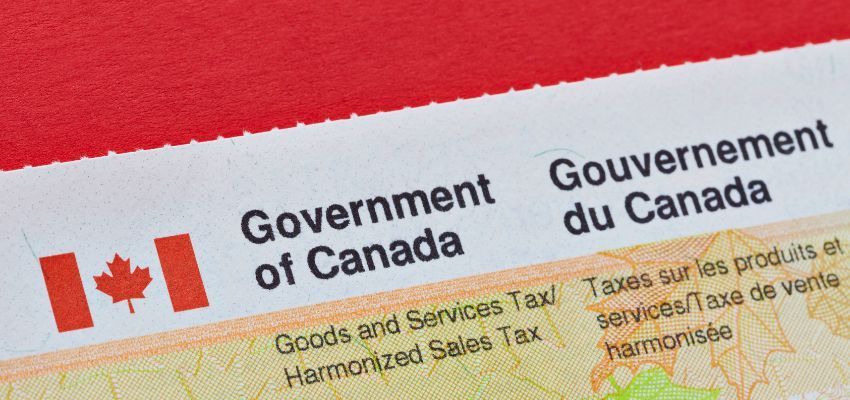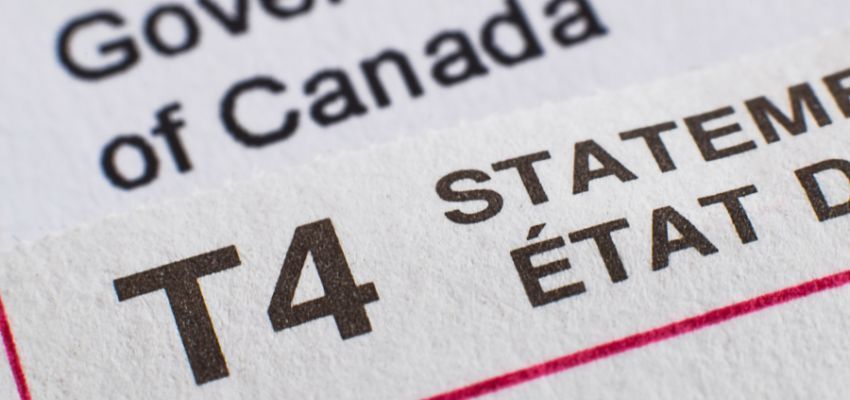How Much Will I Get Back In Taxes? An Easy Breakdown
Tax season can be distressing, especially when you're wondering, "How much will I get back in taxes?" With numerous rules and factors influencing your refund, it's easy to feel overwhelmed. Whether you're a Canadian resident, an international student, or working part-time, understanding your tax situation is the first step to achieving clarity and confidence. Don't let the confusion hold you back—take control of your taxes today.
In this article, we'll break everything down step by step, helping you calculate your potential tax refund with ease. No matter your situation, you'll find the clarity you need to navigate the process and maximize your refund.
What Is A Tax Refund, And Why Does It Matter?
A tax refund, commonly known as a rebate, is money returned to you by the Canada Revenue Agency (CRA) when you've paid more income tax than you owe for the year. Essentially, it's a financial correction in your favour, calculated based on your actual taxable income and any applicable credits.
Why Might You Get A Refund?
- Overpaid taxes: Your employer likely deducts taxes from your paychecks throughout the year. If they withheld more than necessary, the excess will be returned to you as a refund.
- Unused tax credits: Tax credits, such as those for tuition or medical expenses, can also boost your refund. Any credits you qualify for but don't fully utilize will contribute to the amount returned to you.
How Much Can You Expect?
The size of your refund depends on various factors, including your income, deductions, and eligible credits. Wondering how much you'll get back in taxes? Start by reviewing your income and credits to estimate your return.

Who Can Receive A Tax Refund In Canada?
Eligibility for a tax refund in Canada depends on your residency status and income level. Here's how it works:
- Canadian residents: Residents typically qualify for personal tax credits, such as the basic personal amount, making them more likely to receive refunds.
- Non-residents and international workers: Even if you don't reside in Canada full-time, you may still qualify for a refund, especially if a significant portion of your total income is earned in Canada. Note: Canada has tax treaties with many countries. If you're an international student or temporary worker, these treaties might exempt some income or offer other benefits. Check if your country has a treaty with Canada.
- Low-income earners: If your total income is below the basic personal amount ($15,705 in 2024 for those earning under $173,205), you usually don't pay federal income tax on that amount and may get most or all of your taxes refunded. For those earning above this threshold, the basic personal amount gradually reduces to a minimum of $14,156.
Understanding these criteria can help you determine whether you're entitled to a tax refund and how much you might receive.
What Determines Your Tax Refund?
Several factors influence the size of your tax refund. Knowing these can help you better estimate how much you might receive.
Income And Taxes Paid
Your income and the taxes withheld from your paychecks have a direct impact on your refund:
- Higher-income often means higher taxes owed.
- However, overpayments can happen at any income level. For example, if too much tax was deducted from your paychecks throughout the year, you could be eligible for a refund.
Deductions And Tax Credits
Maximizing your deductions and credits can increase your refund. Here are some common examples:
- RRSP contributions: Deposits into a Registered Retirement Savings Plan (RRSP) reduce your taxable income.
- Tuition credits: Students can claim eligible tuition expenses using Form T2202.
- Moving expenses: If you relocated at least 40 km closer to a new job or school, you may be able to claim relocation costs. Note: These expenses can only be deducted against income earned at the new location, such as employment or self-employment income, and the move must be directly related to commencing work or full-time study.
- Medical expenses: Eligible expenses include prescription medications, private health insurance premiums, and even gluten-free products for individuals with celiac disease.
Residency And Work Status
Where you live and work also affects your tax refund, mainly if you lived in Canada for part of the year or earned income from both Canadian and non-Canadian employers.
- If 90% or more of your annual income came from Canada, you can likely claim the full personal tax credit.
- If less than 90% of your income was earned in Canada, your eligibility for certain credits may be limited.
Filing Timing And Accuracy
When and how you file your taxes can make a difference:
- File Early: Submitting your return early ensures you receive your refund faster.
- Avoid Errors: Mistakes, such as omitting income or missing deductions, can delay your refund or reduce the amount you receive.
By understanding these factors, you'll be better equipped to estimate and maximize your tax refund.

How To Easily Estimate Your Canadian Tax Refund
Calculating your tax refund doesn't have to be overwhelming. To accurately estimate your refund, follow these simple steps:
Step 1 – Gather Your Essential Documents
Start by gathering all the necessary paperwork, including:
- T4 slips from your employer(s)
- Receipts for eligible expenses like moving, medical, or tuition costs
- RRSP contribution statements
Step 2 – Add Up Eligible Deductions And Credits
Identify all deductions and tax credits you're entitled to claim, such as:
- Charitable donations
- Childcare expenses
- Work-related costs
Don't forget to include any provincial tax credits you may qualify for, which vary by location and can significantly affect your refund.
Step 3 – Use A Reliable Tax Refund Calculator
Save time by using trusted online tools, like free tax refund calculators. Simply input your income, taxes withheld, and applicable credits to get an estimate of your refund.
You can use CRA-approved tax software like Wealthsimple Tax, TurboTax Free, or StudioTax, which include calculators and direct access to CRA services through Auto-fill My Return. The CRA's "My Account" portal also allows you to access pre-filled information and track your refund easily.
Step 4 – Compare Taxes Paid Vs. Taxes Owed
Finally, calculate the difference between the taxes you were required to pay and the amount already withheld. This difference determines the size of your tax refund.
Maximize Your Tax Refund With These Tips
Who doesn't love a bigger tax refund? Follow these simple strategies to ensure you're getting every dollar you deserve:
Stay Organized All Year Round
Maintain thorough records of your expenses, including childcare, moving costs, and charitable donations. Utilize digital tools or apps to track and store your receipts, making tax season stress-free.
Don't Overlook Valuable Tax Credits
Many taxpayers miss out on credits for which they’re eligible. Double-check your eligibility for key CRA tax credits, such as:
- The Basic Personal Amount: A non-refundable tax credit that enables individuals to earn up to a specified income threshold without being subject to federal income tax.
- Tuition Fee Credits: A non-refundable tax credit in Canada allowing students to claim tuition fees to reduce income tax. Up to $5,000 in unused credits can be assigned to a parent, grandparent, or spouse. Any remaining credits can be carried forward to future years.
- Canada Carbon Rebate: The Canada Carbon Rebate, formerly known as the Climate Action Incentive Payment (CAIP), is a refundable credit issued quarterly through your tax return for residents in provinces under the federal carbon pricing system. As of 2024, this includes Alberta, Saskatchewan, Manitoba, Ontario, Newfoundland and Labrador, Nova Scotia, and Prince Edward Island. To qualify, file your tax return, and retroactive payments will be included in your refund.
Seek Expert Advice For Complex Returns
If your tax situation is more complicated—like being self-employed or earning income from multiple sources—consider hiring a tax professional. Their expertise can help you maximize deductions, minimize errors, and ensure a smoother filing process.
Not sure how to handle your unique tax situation? Adil & Associates offers expert tax services to help you maximize your refund with confidence.
Frequently Asked Questions
How can I determine if I'm eligible for a refund or owe taxes?
You'll receive a tax refund if the amount deducted from your paycheck exceeds your total tax liability, including any applicable credits. If not, you'll owe taxes.
When will I get my tax refund in Canada?
The timeline for receiving your refund depends on the method you used to file your taxes:
- E-filed returns: The CRA typically processes these within eight business days, but it's safe to expect your refund in approximately two weeks.
- Paper returns: It may take up to 8 weeks.
- Non-residents: Processing may take up to 12–16 weeks.
Can I get a refund if I filed late?
You can still receive a refund even if you file your taxes late. However, late filing may delay your refund and result in penalties if you owe taxes.
What if I missed some income or deductions?
If you forgot to include income or deductions, you can submit an adjustment or amended return through the CRA's "My Account" portal.

Take Control Of Your Refund: Know What You’re Owed
A tax refund represents more than just extra cash; it's a reward for overpaid taxes or unclaimed credits. Whether you're a student, full-time worker, or freelancer, understanding the factors that affect your refund is key to answering the question, "How much will I get back in taxes?" Use online calculators, stay organized, and seek professional help if needed. Who knows? Your refund could be even better than you expected!
Ready to take the stress out of tax season? Whether you're filing as a student, freelancer, or full-time employee, Adil & Associates is here to help you file accurately, maximize your refund, and keep more of your hard-earned money. Visit their site today and take the first step toward smarter, stress-free tax filing!



